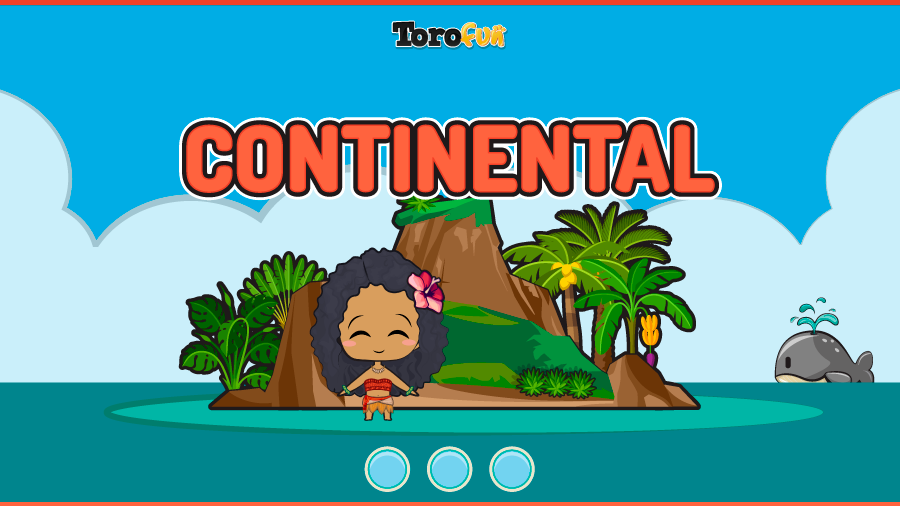

Rules of Continental
How to play Continental
Continentalis a card game similar to Gin Rummy, Remigio or Canasta, but with two unique characteristics. First of all, the combos you have to make after each deal are fixed. And second, players can take someone else's discard out of turn, getting an extra card, called "penalty card" when doing so.
Aim of the game
The objective of the game is to form combinations of cards according to rules and display them on the table. At the end of each round, players score adding the points of the cards remaining in their hand. The player with the fewest points at the end of the game wins.
Deck of cards
The game is played with two or more 52-card English poker decks, each with two or three jokers.
Number of players
The game allows for two to four players.
Order and value of the cards
Here comes the value of the cards:
- Joker:50 points
- Ace: 20 points
- K, Q, J: 10 points
- 10, 9, 8, 7, 6, 5, 4, 3 and 2: Numerical value
The cards follow the usual order from Ace to King.
Dealing the cards
Players are dealt in each hand a variable number of initial cards, which can range from 7 to 13. The remaining cards are placed in the center of the table: one is left uncovered starting the discard pile, and the others are put face down forming the draw deck. During the game, players can take cards from both: the discard pile and the draw deck.
Flow of the game
A Continental game consists of seven hands, and in each one a different combination of three-of-a-kinds and/or straights has to be displayed, with progressively increasing difficulty.
On their turn, each player may take either the face-up card from the discard pile or the top card from the draw deck. Then they need to discard one card onto the discard pile. If the current player decide not to take the card from the discard pile, any player may claim it out of turn, but they must also take a penalty card. If a player has the necessary combinations, they can display them on the table, but if they have taken penalty cards in this turn, they cannot close the game and have to keep the remaining cards in their hand, whether they are part of a combo or not.
Displaying your combos has some advantages, such as reducing points in case another player closes, being able to add cards to other players' combinations (without splitting straights or repeating cards) and using exposed jokers to form new combos. However, it can also be a disadvantage, as it makes it easier for another player to close the game earlier.
Possible combinations
The possible combinations are:
- Three-of-a-Kind: Three (or more) cards of the same value (regardless of suit).
- Straight: Four (or more) consecutive cards of the same suit.
The joker is a special card and can replace any other card. The maximum number of cards in a three-of-a-kind depends on the decks in play, while, in a straight, the maximum is 13 cards, which correspond to all the cards of a suit, although some can be replaced by jokers. A straight can start and end with any card and Ace can be the intermediate card between Deuce and King.
Fixed plays
In each hand, players must meet specific objectives:
- First game: Seven cards are dealt, two three-of-a-kinds must be formed.
- Second game: Eight cards are dealt, one three-of-a-kind and one straight must be formed.
- Third game: Nine cards are dealt, two straights must be formed.
- Fourth game: Ten cards are dealt, three three-of-a-kinds must be formed.
- Fifth game: Eleven cards are dealt, two three-of-a-kinds and one straight must be formed.
- Sixth game: Twelve cards are dealt, one three-of-a-kind and two straights must be formed.
- Seventh game: Thirteen cards are dealt, three straights must be formed.
Penalty cards
Any player can take another player's discard if none of the previous players has taken it. If the player who takes the discard is the one whose turn is, the game continues normally. If a player out of turn takes the discard, they also have to take a penalty card, which may result in them ending their turn with more cards in their hand. If a player decides to take their own discard, they also have to take a penalty card.
Closing
When a player has displayed all their cards and only has one left in their hand, they can place it face down on the discard pile to close (end) the current hand.
Scoring
Players have to add the points corresponding to the cards left in their hand, even if they are part of a combination.
Now, you know everything you need to play! Gather your friends, deal the cards and enjoy a game full of fun and strategy.












